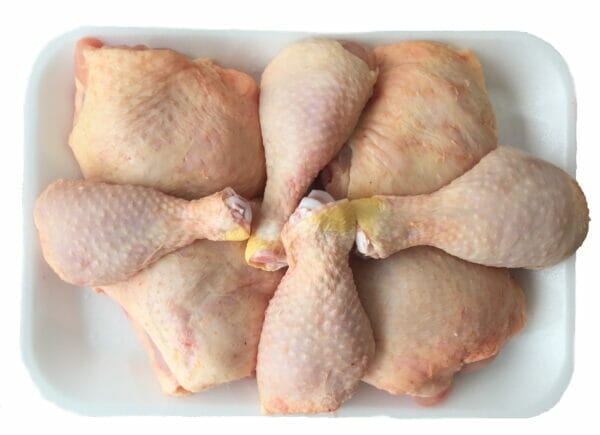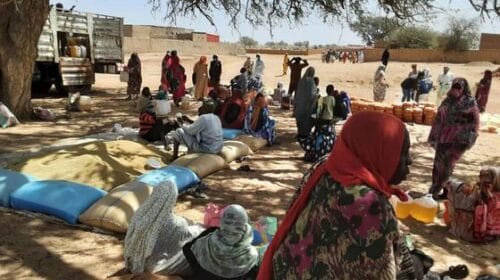South Africa raises quota for US frozen bone-in chicken amid high cost

In an amendment to Schedule 4 the Customs and Excise Act (1964), published in the Government Gazette on 31 March 2023, it was announced that the annual quota for frozen bone-in cuts of the species Gallus Domesticus originating in or imported from the United States (US), would be increased from 71,290 tonnes to 71,632 tonnes, with retrospective effect from 1 April 2022.
Schedule 4 of the Customs and Excise Act allows US frozen chicken to be sold in South Africa via a specific permit or recommendation of the Director General of the South African Department of Agriculture and Land Reform, subject to conditions set out by the Internal Trade Administration Commission.
The United States currently exports bone-in chicken meat to South Africa under a Tariff Rate Quota arrangement, which exempts bone-in chicken imports from anti-dumping duties.
Trade between the US and South Africa is governed by the African Growth and Opportunity Act (AGOA), a non-reciprocal trade preference program that provides eligible sub-Saharan African (SSA) countries with duty-free access for certain exports into the US market. The purpose of AGOA is to expand US trade and investment with SSA, stimulate economic growth, and encourage the continent’s economic integration.
During negotiations for the renewal of AGOA’s preferential treatment for South Africa in 2015, it was agreed that an annual quota of US bone-in chicken could be imported into South Africa from the US, without US exporters having to pay anti-dumping duties normally applicable on these goods.
– Advertisement –
The US is one of the leading poultry exporters to South Africa, in addition to Brazil and the European Union. In 2022, the International Trade Administration Commission of South Africa (ITAC) made a determination in the investigation into the alleged dumping of frozen bone-in portions of chicken imported from Brazil, Denmark, Ireland, Poland and Spain. ITAC concluded its investigation and recommended to the South African Minister of Trade & Industry that anti-dumping duties be imposed on these countries.
However, although the Minister accepted ITAC’s recommendation, the decision was made to suspend the imposition of anti-dumping duties on these countries for a period of 12 months, as published in the Government Gazette on 1 August 2022.
The Minister noted that the decision was based on the current rapid rise in food prices in the South African Customs Union (SACU) market and globally, and the significant impact this has, especially on the poor. Also considered was the impact the imposition of the anti-dumping duties may have on the price of chicken.
As the main source of protein for low-income households, it is imperative that South Africans have a range of price options to choose from when purchasing chicken. However, the price of chicken has continued to increase since then.
In December 2022, Bloomberg’s Shisa Nyama Index revealed that 10kg of frozen chicken pieces was the most expensive item on the index. The Index uses data from the Pietermaritzburg Economic Justice & Dignity Group and tracks the prices of ingredients used in a traditional South African dish – shisa nyama.
The decision to again increase the quota of frozen chicken that is allowed to be imported into South Africa from the US may be seen by some to be a compromise that must be made for South Africa to continue to benefit from the AGOA program, however, it will hopefully also assist in bringing the price of chicken down for poverty-stricken households.
It is also hoped that the SACU, and South Africa in particular, will soon be able to conclude a reciprocal, mutually beneficial trade agreement with the US that further addresses the challenges around this issue, especially considering that the AGOA program’s preferential stipulations are set to expire again in 2025.
Author: By Virusha Subban, Partner specialising in Customs and Trade, Head of Tax, Baker McKenzie Johannesburg




